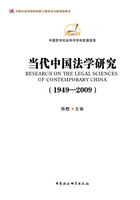It seems to have been taken as a matter of course in the procedure of Congress and was accepted by the States. But the idea was one thing; its carrying out was quite another. Here was a great extent of western territory which would be valuable only as it could be sold to prospective settlers. One of the first things these settlers would demand was protection--protection against the Indians, possibly also against the British and the Spanish, and protection in their ordinary civil life. The former was a detail of military organization and was in due time provided by the establishment of military forts and garrisons; the latter was the problem which Jefferson's committee was attempting to solve.
The Ordinance of 1784 disregarded the natural physical features of the western country and, by degrees of latitude and meridians of longitude, arbitrarily divided the public domain into rectangular districts, to the first of which the following names were applied: Sylvania, Michigania, Cherronesus, Assenisipia, Metropotamia, Illinoia, Saratoga, Washington, Polypotamia, Pelisipia. The amusement which this absurd and thoroughly Jeffersonian nomenclature is bound to cause ought not to detract from the really important features of the Ordinance. In each of the districts into which the country was divided the settlers might be authorized by Congress, for the purpose of establishing a temporary government, to adopt the constitution and laws of any one of the original States. When any such area should have twenty thousand free inhabitants it might receive authority from Congress to establish a permanent constitution and government and should be entitled to a representative in Congress with the right of debating but not of voting. And finally, when the inhabitants of any one of these districts should equal in number those of the least populous of the thirteen original States, their delegates should be admitted into Congress on an equal footing.
Jefferson's ordinance, though adopted, was never put into operation. Various explanations have been offered for this failure to give it a fair trial. It has been said that Jefferson himself was to blame. In the original draft of his ordinance Jefferson had provided for the abolition of slavery in the new States after the year 1800, and when Congress refused to accept this clause Jefferson, in a manner quite characteristic, seemed to lose all interest in the plan. There were, however, other objections, for there were those who felt that it was somewhat indefinite to promise admission into the Confederation of certain sections of the country as soon as their population should equal in number that of the least populous of the original States. If the original States should increase in population to any extent, the new States might never be admitted. But on the other hand, if from any cause the population of one of the smaller States should suddenly decrease, might not the resulting influx of new States prove dangerous?
But the real reason why the ordinance remained a dead letter was that, while it fixed the limits within which local governments might act, it left the creation of those governments wholly to the future. At Vincennes, for example, the ordinance made no change in the political habits of the people. "The local government bowled along merrily under this system. There was the greatest abundance of government, for the more the United States neglected them the more authority their officials assumed."* Nor could the ordinance operate until settlers became numerous. It was partly, indeed, to hasten settlement that the Ordinance of 1785 for the survey and sale of the public lands was passed.**
* Jacob Piat Dunn, Jr., "Indiana: A Redemption from Slavery,"
1888.
** Although the machinery was set in motion, by the appointment of men and the beginning of work, it was not until 1789 that the survey of the first seven ranges of townships was completed and the land offered for sale.
In the meantime efforts were being made by Congress to improve the unsatisfactory ordinance for the government of the West.
Committees were appointed, reports were made, and at intervals of weeks or months the subject was considered. Some amendments were actually adopted, but Congress, notoriously inefficient, hesitated to undertake a fundamental revision of the ordinance.
Then, suddenly, in July, 1787, after a brief period of adjournment, Congress took up this subject and within a week adopted the now famous Ordinance of 1787.
The stimulus which aroused Congress to activity seems to have come from the Ohio Company. From the very beginning of the public domain there was a strong sentiment in favor of using western land for settlement by Revolutionary soldiers. Some of these lands had been offered as bounties to encourage enlistment, and after the war the project of soldiers' settlement in the West was vigorously agitated. The Ohio Company of Associates was made up of veterans of the Revolution, who were looking for homes in the West, and of other persons who were willing to support a worthy cause by a subscription which might turn out to be a good investment. The company wished to buy land in the West, and Congress had land which it wished to sell. Under such circumstances it was easy to strike a bargain. The land, as we have seen, was roughly estimated at one dollar an acre; but, as the company wished to purchase a million acres, it demanded and obtained wholesale rates of two-thirds of the usual price. It also obtained the privilege of paying at least a portion in certificates of Revolutionary indebtedness, some of which were worth about twelve and a half cents on the dollar. Only a little calculation is required to show that a large quantity of land was therefore sold at about eight or nine cents an acre. It was in connection with this land sale that the Ordinance of 1787 was adopted.















